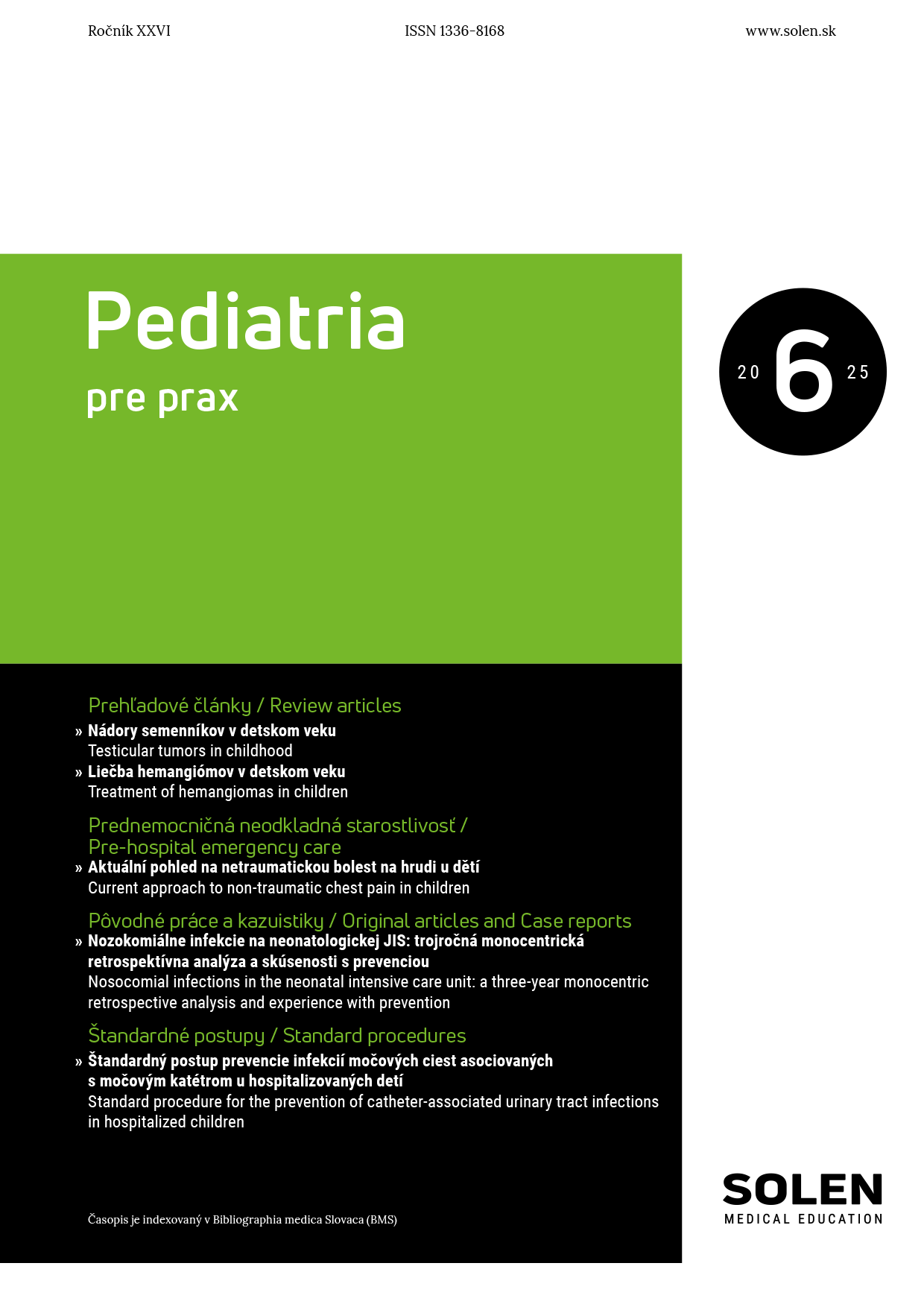Lekárska genetika a diagnostika 2/2025
Development and parameters of non-invasive prenatal testing in Slovakia
The detection of chromosomal numerical and structural changes using non-invasive prenatal testing (NIPT) has evolved over the last decade into a highly effective screening tool used in clinical practice worldwide. Optimal implementation into national screening programs should be accompanied by a precise description of its parameters, allowing both physicians and pregnant women to benefit from it to the greatest extent possible, while taking into account its critical limitations and local specificities. Our retrospective, single-center observational study, based on the utilization of a single laboratory method (Trisomy test®), evaluates usage patterns, test selection, turnaround times (TAT), and analyzes NIPT results from 2016 to 2024 in a cohort of 27,237 pregnant women from Slovakia. We analyzed trends in NIPT utilization, obtained result types, and assessed factors such as the age, gestational age, and weight of pregnant women from historical data, as well as fetal fractions determined in the analyzed samples as parameters influencing the test outcome. The average age of women undergoing NIPT decreased from 36.9 years in 2016 to 33.6 years in 2024, and the average turnaround time increased from 4.2 days in 2016 to 4.8 days in 2024. The study found an increase in the proportion of Slovak women who underwent NIPT in our laboratories, from 4.0% in 2016 to 8.43% in 2024. Furthermore, the gestational age at NIPT decreased from 15.1 to 14.5 weeks, and the weight of pregnant women significantly increased from 67.3 kg to 68.1 kg during the evaluated period. Among the high-risk results, we evaluated the detection of the most common trisomies (T21, T18, and T13), sex chromosome aneuploidies (SCA), rare autosomal aneuploidies (RAT), and subchromosomal copy number variations (CNV). The proportion of pregnancies with high-risk results was 1.45%, 0.54%, 0.31%, and 0.50%, respectively. The overall failure rate (non-informative results) was 1.31%. The introduction of NIPT into the public healthcare system in Slovakia could further improve equitable access to state-of-the-art prenatal care.
Keywords: prenatal screening, NIPT, cffDNA, chromosomal abnormalities, NGS, low coverage whole genome sequencing

















